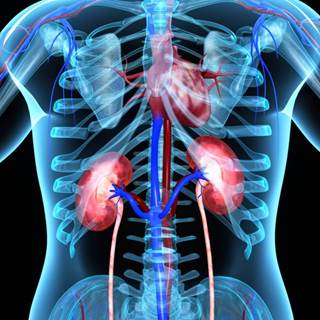Search for dialysis centres here
 Log in to explore the world's most comprehensive database of dialysis centres for free!
Log in to explore the world's most comprehensive database of dialysis centres for free!
| Kidney Transplant Outcomes Better If Donors Are Kept in Hypothermia - Renal and Urology News |
 |
 |
July 30, 2015
 Risk of delayed graft function is reduced when donors are maintained at a temperature of 93.2° to 95° F prior to kidney harvesting after death. Targeted mild hypothermia in kidney donors prior to organ harvesting after death may be an effective way to improve transplant outcomes, according to a new study. In a prospective, randomized study, this approach was associated with a significant 38% decreased risk of delayed graft function (DGF) compared with maintaining a normal body temperature, Claus U. Niermann, MD, of the Division of Transplant Surgery at the University of California San Francisco, and colleagues reported in The New England Journal of Medicine (2015;373:405-414). “This trial showed that a noninvasive temperature-management protocol aimed at achieving a mild level of hypothermia in donors decreased the rate of delayed graft function in recipients,” the investigators concluded. “This decrease was particularly evident in kidney recipients from the highest-risk donors.” On the recommendation of an independent data and safety monitoring board, the trial was terminated early after an interim analysis showed efficacy of hypothermia. At trial termination, the study had enrolled 370 organ donors, who were randomly assigned to a hypothermia group (180 donors) or a normothermia group (190 donors). Donor assigned to the hypothermia group were either allowed to spontaneously reach a body temperature of 34° to 35° C (93.2° to 95° F) or were cooled using forced-air systems or passive-cooling devices. Donors assigned to the normothermia group were kept at 36.5° to 37.5° C (97.7° to 99.5°) with the use of the same devices. The primary outcome was DGF, defined as a kidney recipient's requirement for dialysis during the first week following transplantation. DGF developed in 79 recipients of kidneys from donors in the hypothermia group (28%) and 112 recipients of kidneys from donors in the normothermia group (39%). The authors explained that because hypothermia is a generalized, systemic intervention in the donor, “possible benefits to the kidney must be weighed against risks to other organs that may be transplanted.” In their study, however, they reported finding no significant between-group differences in the number of either individual organs or total organs transplanted from each donor. |
 Professional dialysis recruitment
Professional dialysis recruitment
